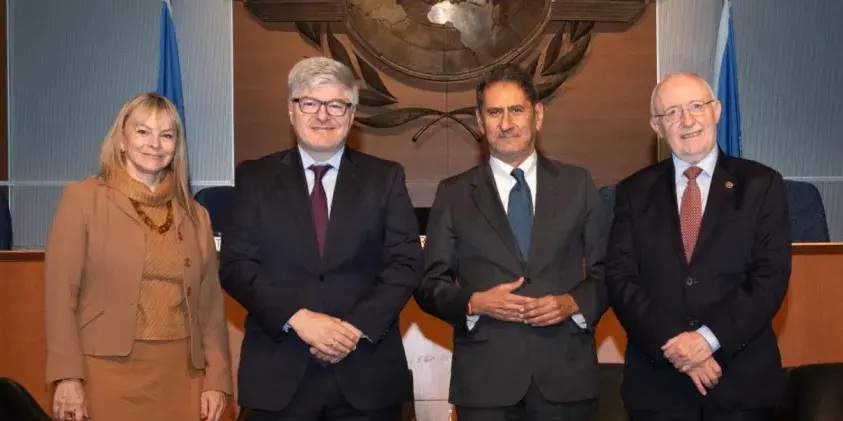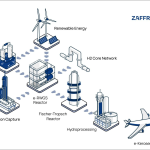The Finvest initiative has been launched amid growing industry concerns about insufficient production of SAF and other low carbon aviation products, the high costs to airlines of procuring the fuels and uneven access to supplies as global demand for air travel continues to soar. Passenger journeys are expected to at least double by 2045, five years before the industry’s deadline for achieving net zero carbon emissions.
The formal launch of Finvest@ETAF was the core announcement of the ICAO Innovation Fair, which preceded the Assembly and served as an incubator for policy ideas and partnerships to drive ICAO’s Long Term Strategic Plan for safe and net zero air transport operations.
The announcement was also timed to precede November’s COP30 climate summit in Belém, Brazil, during which sustainable fuels are expected to be a key focus.
“Innovation is providing the foundation for continued progress and sustainable development for future generations,” said Salvatore Sciacchitano, President of the ICAO Council at the launch of Finvest@ETAF.
“This launch marks a significant milestone in aviation’s net zero carbon emission journey,” added Juan Carlos Salazar, ICAO’s Secretary General.
“It is a first-of-its-kind gateway between project developers and financiers,” he explained, to facilitate funding to scale up SAF production and other clean energy solutions for the air transport sector.
“The success of Finvest@ETAF will depend on a strong pipeline of projects from every region. This matchmaking function, using ICAO’s sustainability criteria, helps de-risk investments while ensuring environmental integrity.”
IRENA is the primary intergovernmental agency responsible for the global transition to renewable-based energy. Comprised of 169 countries and the EU, the agency enables international collaboration to help mitigate the impacts of climate change by providing knowledge, technical assistance and capacity building to facilitate projects and investments.
Within IRENA’s scenario of a 1.5˚C increase in global temperatures by 2050, ICAO estimates that SAF could deliver 40-65% of aviation’s carbon emission reductions, the balance coming from initiatives including operational measures, new fleets and electric and hydrogen propulsion systems, early versions of both of which are progressing towards certification for commercial deployment.
“Sustainable aviation fuels will shape the future of flight but the sector has yet to take off at the scale needed,” said IRENA’s Director General, Francesco La Camera.
“By leveraging IRENA’s financing network and ICAO’s technical expertise, Finvest@ETAF will support SAF projects across their entire lifecycle, bringing visibility to bankable projects while helping promising ideas develop into fully-fledged proposals ready to attract investment and move into deployment.”
The Finvest initiative was part of a four-point Global Framework for sustainable aviation fuels, lower carbon aviation fuels and other aviation cleaner energies such as electricity and hydrogen that was agreed by ICAO member states at the CAAF/3 event in Dubai.
ICAO member states agreed at the meeting to a 2030 ‘Vision’ of “an aspirational global interim goal” of a 5% reduction in the carbon intensity of aviation fuel. In addition to financing, the plan focused on policy and planning, regulatory frameworks and implementation support.

(left to right) Jane Hupe, Deputy Director, Environment, ICAO; Juan Carlos Salazar, ICAO Secretary General; IRENA’s Director General, Francesco La Camera; and Salvatore Sciacchitano, President of the ICAO Council

Tony Harrington
Correspondent














More News & Features
ICAO releases first-ever growth factor for airlines’ CORSIA offsetting requirements
US rebukes ICAO for wasting resources on climate financing initiatives and warns against global levies
Countries gather for triennial ICAO Assembly, with a focus on CORSIA and SAF scale-up
COMMENTARY: China poised to evolve from rule-taker to rule-shaper at ICAO Assembly
International airlines face major CORSIA offset costs from 2027, says IBA
Carbon credit supply crunch puts CORSIA compliance by airlines at risk, warns report